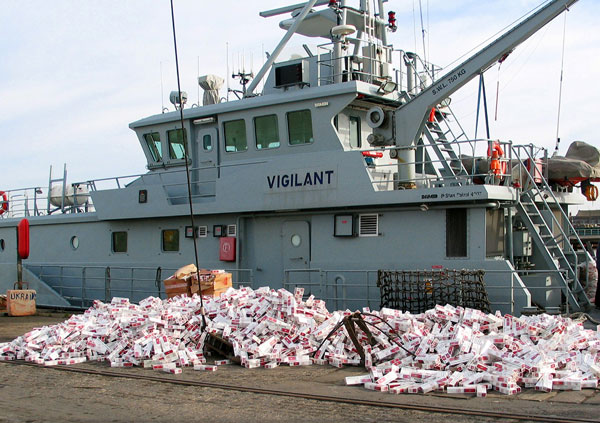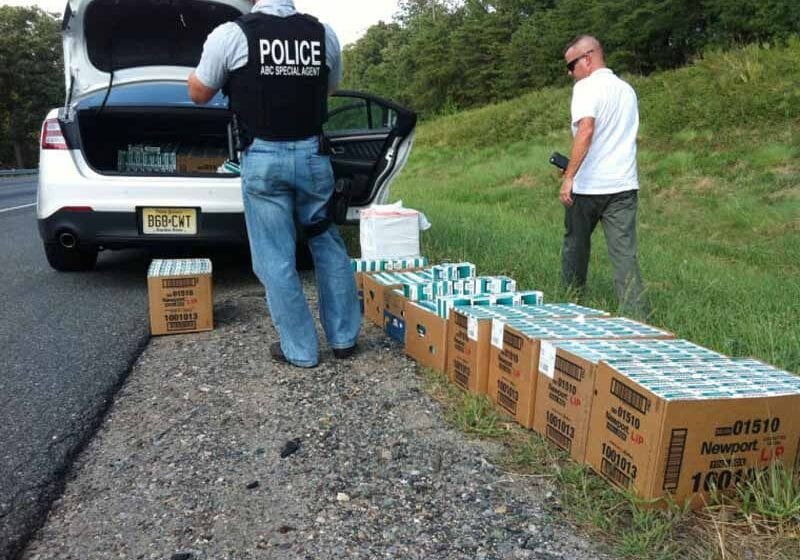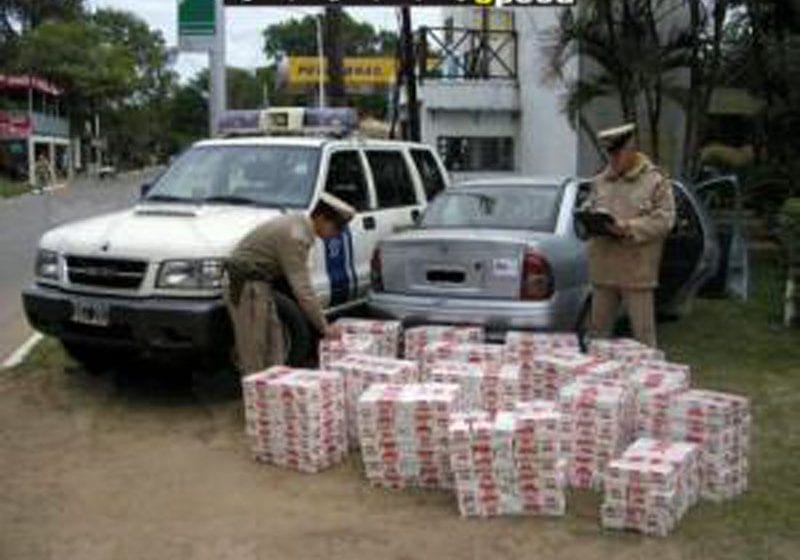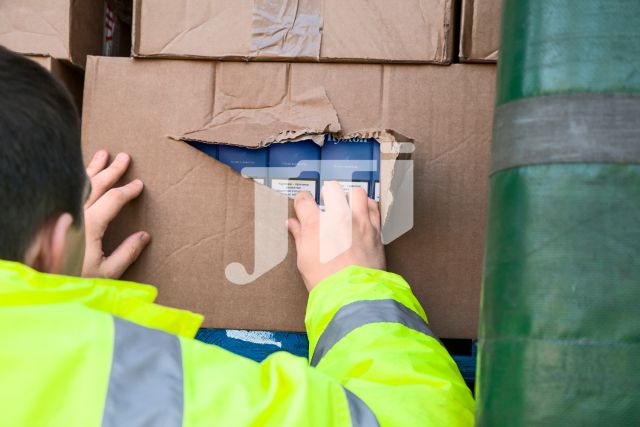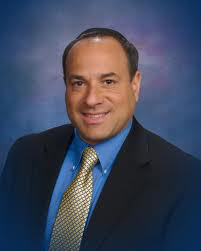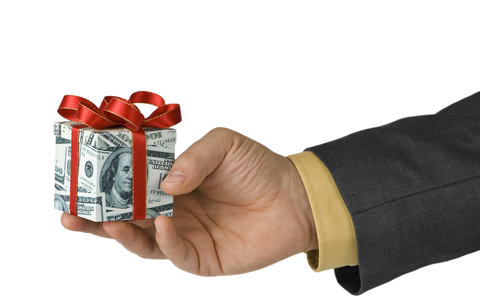A Portuguese member of the EU Parliament has raised concerns about a possible increase in the number of cigarettes being smuggled into the EU from Montenegro.
In a preamble to three questions posed to the Commission, Ana Gomes said the Commission’s 2018 report on Montenegro had highlighted continuing issues surrounding illicit tobacco products entering the EU from the country’s free-trade zone at the port of Bar, and OLAF’s [European anti-fraud office] co-operation with national customs authorities with a view to controlling the flow of these products.
‘Media reports confirm that the Government of Montenegro has authorised a new free-trade zone in Podgorica to begin operations,’ she said.
‘The Podgorica free trade zone is all the more concerning as it contains a cigarette factory, which reportedly began production trials in late May 2018.
‘These developments present a new threat which could result in an increase in the number of cigarettes being smuggled into the EU from Montenegro.’
The MEP asked:
* ‘Can the Commission confirm that it is aware of the establishment of a new free-trade zone in Podgorica?
* ‘Can it provide details of the measures it intends to take with the Montenegrin authorities to put in place adequate controls on the flow of products from the new cigarette factory located in the new free-trade zone in Podgorica?
* ‘Can it indicate how the illicit trade in tobacco products will be addressed in the context of the accession negotiations on Montenegro’s candidature to join the EU?’
The Commission is due to answer the questions in writing.
Category: Illicit Trade

Illegal trade threat to EU

Smuggling losses unknown
The European Commission has said it is not possible accurately to quantify revenue losses due to the illegal trade in tobacco products.
The Commission was responding to questions posed by the Spanish member of the European Parliament, José Ignacio Salafranca Sánchez-Neyra, who prefaced his questioned by saying that Tobacco smuggling was one of the leading types of fraud creating huge losses for the EU budget.
‘With that in mind,’ he said, ‘can the Commission state:
1) ‘Whether it is taking any measures, in conjunction with the member states, to curb this illicit practice?
2) ‘Whether it has any figures/percentages for the amounts lost due to fraud? If so, what were the figures for 2017?’
In answer to the first question, the Commission said that, in 2013, it had adopted a comprehensive strategy to combat the illegal tobacco trade, as well as an Action Plan that was implemented in close co-operation with member states. ‘A report on the progress in implementing such strategy was presented to the European Parliament and the Council in 2017,’ it said. ‘The Report identifies possible areas for further action by the EU and member states and indicates that the Commission will present follow-up initiatives in 2018, following a consultation with the relevant stakeholders.’
In answer to the questions under 2); the Commission said it was not possible ‘to accurately quantify revenue losses due to clandestine activities’. ‘Therefore, the Commission does not have any official figures for the amounts lost due to cigarette smuggling,’ it said. ‘Purely to give a sense of the possible order of magnitude, it has been estimated that revenue losses could amount to as much as €10 billion annually.’
UK taxes too high
Eighty-six percent of UK adult smokers believe that tobacco prices are too high, while 56 percent agree that rising prices tempt them to buy untaxed tobacco, according to the results of a survey commissioned by the UK’s Tobacco Manufacturers’ Association (UKTMA).
The survey of more than 12,000 adult smokers in the UK found that more than three-quarters regularly avoid UK taxes by buying tobacco from the black market, abroad or duty free.
It found that the number of smokers who avoid paying UK duty now stands at an all-time high, a finding that the UKTMA says supports HM Revenue and Customs analysis that untaxed and illicit tobacco remains a problem throughout the UK.
‘Moreover,’ the UKTMA said in a press note, ‘the findings confirm that adult smokers are being pushed towards non-UK-duty tobacco by high tobacco taxation, the introduction of plain packaging and the recent ban on minimum tobacco pack sizes.’
The key findings of the survey were said to be:- ’76 percent of adult smokers buy untaxed tobacco at least once a year – this can be from legal sources such as at duty free but also includes illegal sources such as from people in the pub or in street markets.’
- ’16 percent of adult smokers spend more than £1,000 on untaxed tobacco every year.’
- ’28 percent of smokers agree that plain packaging tempts them to buy untaxed tobacco.’
- ’37 percent of smokers agree that minimum pack sizes tempt them to buy untaxed tobacco.’
- ‘The average price for a pack of 20 illegal cigarettes is just £4.33 – almost half the typical legitimate UK price.’
- ‘London (85 percent) has the highest prevalence on non-UK duty paid tobacco purchases with Wales having the lowest (70 percent).’
- ’86 percent of adult smokers believe that tobacco prices are too high and 56 percent agree that rising tobacco prices tempt them to buy untaxed tobacco.’
- ’64 percent of adult smokers would support the re-introduction of duty free tobacco shopping from the EU post Brexit even if it was limited to 200 cigarettes or 250 g roll your own tobacco.’
‘These findings reinforce the concern that the illicit tobacco trade is continuing to be a major problem,’ the press note said.
‘Valued at £2.5 billion in 2016-17 by HRMC, the illicit tobacco trade reduces tobacco tax revenues, brings crime into communities, costs jobs and impacts legitimate business, particularly independent retailers.
‘The TMA recommends that, post-Brexit, the UK introduces fixed limits on personal tobacco imports to end the option for smokers to bring unlimited amounts of cheap tobacco back from the EU. This would reduce the opportunity for criminals to buy tobacco, claiming it is for personal use and then selling it on illegally.’
Giles Roca, the director general of the UKTMA was quoted as saying that the survey, now in its fifth year, had shown that the issue of untaxed tobacco was becoming an even greater problem across the UK.
“Smokers cite price as the chief reason for avoiding duty and with tax making up 90 percent of the price, combined with two duty increases in 2017 we can see the direct impact that the Government’s taxation policy is having,” Roca said.
“This survey also shows that the introduction of plain packaging and the ban on small packs of tobacco in the last year are also contributing to making the problem of untaxed tobacco purchases worse and encouraging smokers to buy from illegal sources.
“The Government needs to undertake a full review of its approach towards tobacco as their policies are contributing to this illegal activity, which affects local communities, public finances and small business.”
Reflecting on smuggling
The European Commission has said that it is reflecting on whether additional activities should be proposed in respect of the implementation of its 2013 strategy aimed at combatting the illegal trade in tobacco products.
The Commission was replying in writing to two questions from the German member of the European Parliament, Wolf Klinz, who said, in a preamble to his questions, that the EU had been confronted with the smuggling of tobacco products across its eastern and southern borders.
The cheap prices of smuggled tobacco products risked undermining the EU’s efforts to limit smoking, he added, before asking:
‘Is the Commission aware of the smuggling methods and the organized groups behind the smuggling?
‘What is the Commission doing to combat the smuggling?’
In reply, the Commission said the illegal tobacco trade was a cross-border phenomenon that required a global approach and international co-operation.
‘In the past years, the Commission has promoted the ratification of a new global anti-smuggling treaty, i.e. the Protocol to Eliminate Illicit Trade in Tobacco Products to the World Health Organization’s Framework Convention on Tobacco Control…,’ it said. ‘The Commission welcomes the entry into force of the Protocol in September 2018 as a significant step forward in the fight against cigarette smuggling.
‘The Commission presented in May 2017 a report on progress in the fight against the illicit tobacco trade; that report also touches upon current smuggling trends. The report found that, despite the measures taken in recent years, the illicit tobacco trade remains at preoccupying levels in the EU. The Commission is therefore currently reflecting whether additional activities should be proposed in implementation of its 2013 strategy, which remains pertinent and relevant.
‘The European Anti-Fraud Office (OLAF) has an investigative mandate to fight tobacco smuggling into the EU. OLAF also co-ordinates anti-smuggling operations carried out by law-enforcement agencies across Europe and ensures that evaded duties are recovered, smuggling networks are dismantled and perpetrators brought to justice. OLAF is well aware of current trends in the smuggling of tobacco products.’
Contraband on the run
The volume of contraband cigarettes, including counterfeit products, entering Estonia decreased by 21 percent last year, according to an Eesti Rahvusringhääling [Estonian Public Broadcasting] story.
At the same time the legal cross-border trade in cigarettes increased by 35 percent.
These figures were said to have come from a report of a study conducted by KPMG for the Royal United Services Institute for Defence and Security Studies (RUSI).
The study apparently cited strong border controls and the ‘work of the security authorities’ as reasons for the fall in the illegal trade.
The report said that, compared to the situation in 2013, the contraband market in cigarettes had fallen from 350 million to 180 million cigarettes.
Despite this fall, the report says that state revenues would be better off to the tune of €26 million if contraband sales could be converted into sales of licit products.
Seventy-seven percent of the contraband cigarettes that reach Estonia originate in Russia and Belarus, from where the best-known brands are Bayron and NZ.
Although contraband volumes continue to decrease, legal cross-border trade from which the state does not receive tax income has increased by 35 percent. Between 2016 and 2017, the number of cigarettes brought from Latvia legally doubled.
A question of fraud
A Spanish member of the European Parliament wants to know how much is being ‘lost’ to tobacco smuggling.
In a preamble to questions posed to the Commission, José Ignacio Salafranca Sánchez-Neyra said tobacco smuggling was one of the leading types of fraud causing huge losses to the EU budget.
With that in mind, he asked the Commission:
1) Whether it was taking any measures, in conjunction with member states, to curb this illegal practice.
2) And whether it had any figures/percentages for the amounts lost to fraud; and if so, what were the figures for 2017.
These questions are due to be answered by the Commission in writing.
Rapid changes needed
A proposal in the US to lower the maximum amount of nicotine in legally available cigarettes to non-satisfying and non-addictive levels would cause deadly problems for years to come, according to Jeff Stier, a senior fellow at the Consumer Choice Center and a policy advisor to The Heartland Institute, writing at blog.heartland.org.
Stier described the Food and Drug Administration proposal as policy candy that provided public health groups with a head-rush, but he said that evidence was scant that it would help smokers quit. And he added that it would be a boon to the already-thriving black market for these highly addictive products.
Stier was writing on July 27, a day ahead of the one-year anniversary of the FDA’s announcement about what it called a “new comprehensive plan for tobacco and nicotine regulation” that “places nicotine, and the issue of addiction, at the center of the agency’s tobacco regulation efforts”.
‘When rolling out the multi-year plan, [FDA] Commissioner Scott Gottlieb said that “the overwhelming amount of death and disease attributable to tobacco is caused by addiction to cigarettes”,’ said Stier ‘Never was a more obvious statement more necessary, given the recent media hysteria over e-cigarettes.’
In his piece, Stier looks at the agency’s two-pronged approach to reduce smoking, the first of which involved a public dialogue about lowering nicotine levels in combustible cigarettes to non-addictive levels.
‘The second part of the plan voiced a commitment to reform regulations to foster innovation for both recreational (e-cigarettes) and medicinal (nicotine replacement therapy) products,’ he said. ‘This component of the plan gave hope to countless former smokers who are smoke-free today because of e-cigarettes.’
But, Stier said, FDA regulations already in force had put a freeze on innovation within this category. ‘And unless the FDA quickly makes regulatory changes, nearly all currently available e-cigarettes will be removed from the marketplace in just a few years,’ he warned.
Stier goes on to evaluate what the FDA has achieved one year into its plan.
Consuming question
Sales of illicit cigarettes have been rising in New York City for more than 10 years and now outnumber sales of licit cigarettes, according to a story by Gregory Bresiger for the New York Post quoting Scott Drenkard of the Tax Foundation.
New York had “the worst smuggling problem in America,” said Drenkard, adding that the least a smoker could now legally pay for a pack in New York City was $13, which was recently raised from $10.50.
Cigarette taxes and a new minimum price rule have raised the price of a pack by about 200 percent over the past decade.
Consequently, smugglers buy cigarettes in a low-tax state such as Virginia, which imposes a 30-cent tax, and sells them in New York, where the combined city-and-state tax is £5.85.
“Price disparities create incentives for illegal activity,” said Kim Kessler, assistant commissioner for the bureau of chronic disease prevention and tobacco control, NYC Health Department.
“But we know that despite this activity, raising the price of tobacco products still reduces consumption. The lives we save by raising the price of tobacco far outweigh any lost taxes due to illegal sales,” Kessler told The Post.
“The adult smoking rate has decreased from 21.5 percent in 2002 to 13.1 percent in 2016. Increasing the cigarette price floor to $13 is projected to lead to a 6.4 percent decline in adult cigarette smoking.”
Counterfeit combat
A French member of the European Parliament has asked the Commission how it intends to involve consumers in the fight against counterfeiting.
In a preamble to three questions, Jérôme Lavrilleux said that a study by the European Intellectual Property Office (EUIPO) had found that counterfeiting costs the European economy almost €60 billion.
‘The EUIPO estimates that counterfeit products account for up to five percent of the EU’s imports, valued at €85 billion per annum,’ said Lavrilleux.
‘In addition, measures against imports of such products seem feeble in relation to the amounts of money and quantities of goods involved.
‘According to Commission figures, customs services intercepted 41 million items of counterfeit goods in 2016. The total value of the equivalent genuine products would have been in the region of €672 million.
‘This poses a serious threat to IPR-intensive sectors, which account for 42 percent of European GDP and 28 percent of employment in the European Union. Nearly 434,000 jobs are directly threatened.’
Lavrilleux asked:
‘How will the Commission step up measures to combat counterfeit products at EU and member state levels?
‘Does the Commission intend to strengthen the regulatory framework and harmonise national legislation so that they become stronger deterrents?
‘How will the Commission make consumers more aware and involve them more in combating counterfeiting?’
Lavrilleux’s questions are due to be answered by the Commission in writing.
Anti-smuggling campaign
The UK’s Tobacco Manufacturers’ Association (TMA) has launched a nationwide campaign to help fight the illegal trade in tobacco products.
In a press note issued yesterday, the TMA said posters would be displayed on telephone boxes in 50 illicit-tobacco hot spots across the UK so those tempted to buy or sell cheap illicit tobacco were warned of the consequences.
The campaign encouraged those who were aware of illicit tobacco, but who didn’t buy or sell it, to report any suspicious activity to HM Revenue & Customs.
The campaign, the TMA said, would be waged also at the UK’s busiest port and various airports to remind people who bring tobacco back from abroad that it was illegal to sell it on without paying UK taxes.
‘The campaign has been developed following research which has found that many adult smokers are unaware of or simply disregard the law,’ the note said. ‘This campaign will therefore “nudge” smokers away from the illicit market by reminding them of what is legal and what is not and raise awareness of the HMRC illicit trade reporting hotline.’
Posters have been put up in 50 locations in Cardiff, Glasgow, Perth, Dundee, London and Manchester, while billboards are being displayed at Dover international sea port and at the airports of Glasgow, Glasgow Prestwick, East Midlands, Manchester, Cardiff and Belfast.
‘Illegal tobacco is a major social problem,’ said the note. ‘According to HMRC, it cost the government £2.5 billion in lost taxes in 2016-17 which in turn puts important public services at financial risk. Moreover, it brings crime into local communities, hurts small independent retailers and the profits from illegal tobacco have been known to finance terrorism and organised criminal gangs.
‘It has been estimated that the sale of illicit tobacco made criminals more than £1.5 billion and cost the small retail sector more than £1.7 billion in revenue.’
“The tobacco industry is committed to helping fight the illegal tobacco market which impacts communities, public services and small retailers,” said Giles Roca, director general of the TMA.
“The Government needs to commit greater resources to tackling illegal trade and needs to consider innovative solutions post-Brexit to halt the flow of cheap foreign tobacco into the country.”

